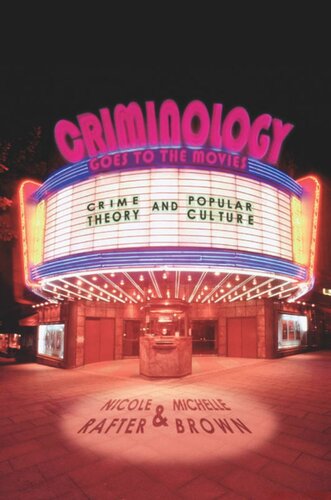

Most ebook files are in PDF format, so you can easily read them using various software such as Foxit Reader or directly on the Google Chrome browser.
Some ebook files are released by publishers in other formats such as .awz, .mobi, .epub, .fb2, etc. You may need to install specific software to read these formats on mobile/PC, such as Calibre.
Please read the tutorial at this link: https://ebookbell.com/faq
We offer FREE conversion to the popular formats you request; however, this may take some time. Therefore, right after payment, please email us, and we will try to provide the service as quickly as possible.
For some exceptional file formats or broken links (if any), please refrain from opening any disputes. Instead, email us first, and we will try to assist within a maximum of 6 hours.
EbookBell Team

4.0
26 reviewsInvestigating cinema under the magnifying glass
From a look at classics like Psycho and Double Indemnity to recent films like Traffic and Thelma & Louise, Nicole Rafter and Michelle Brown show that criminological theory is produced not only in the academy, through scholarly research, but also in popular culture, through film. Criminology Goes to the Movies connects with ways in which students are already thinking criminologically through engagements with popular culture, encouraging them to use the everyday world as a vehicle for theorizing and understanding both crime and perceptions of criminality. The first work to bring a systematic and sophisticated criminological perspective to bear on crime films, Rafter and Brown’s book provides a fresh way of looking at cinema, using the concepts and analytical tools of criminology to uncover previously unnoticed meanings in film, ultimately making the study of criminological theory more engaging and effective for students while simultaneously demonstrating how theories of crime circulate in our mass-mediated worlds. The result is an illuminating new way of seeing movies and a delightful way of learning about criminology.
Instructor's Guide